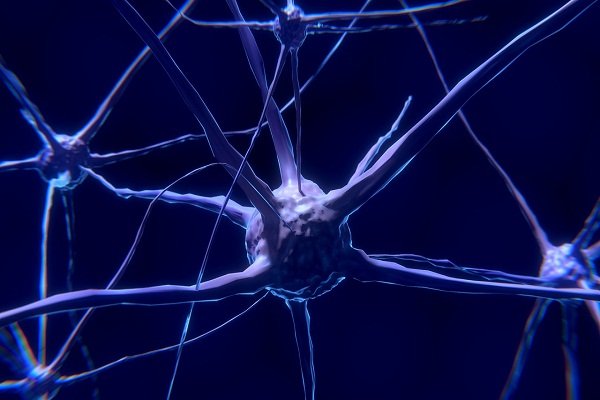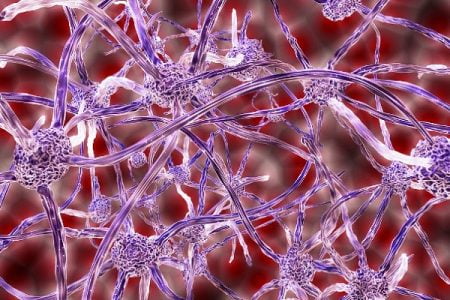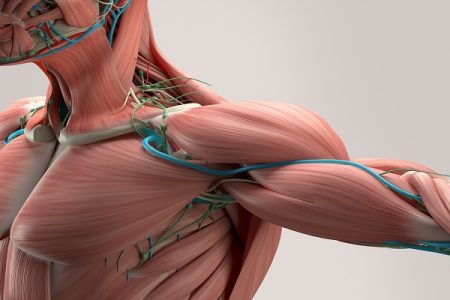Pinched Nerve (Compressed Nerve): Causes, Symptoms, Diagnosis, Treatment, Prevention
- Updated on: Jul 24, 2024
- 7 min Read
- Published on Jul 18, 2018


Definition and Meaning: What is a Pinched Nerve (Trapped Nerve)?
A pinched nerve is defined as an uncomfortable sensation, pain or numbness in a particular nerve. It occurs due to increased pressure on the nerve, which leads to irritation or damage in the peripheral nerve. The peripheral nerve is located outside the brain and spinal cord region.
A pinched nerve in neck and back region is the most commonly experienced form of nerve pinching. But, you can experience a trapped nerve in any part of your body.
Signs and Symptoms of a Pinched Nerve
The signs and symptoms of a trapped nerve or pinched nerve depend upon the type of nerve which is compressed. The most common symptoms experienced during any type of impinged nerve include:
- Severe Pain
- Numbness
- Tingling sensation
- Weakness in the affected areas muscles
- Pins and needle or burning sensation
- Radiating pain to the surrounding body parts
- Pain while moving the affected region
One of the most common symptoms experienced in every type of pinched nerve is a tingling sensation in the affected region. Some individuals may experience numbness along with tingling sensation. Initially, these sensations may come and go, but with time, they may become persistent. In early stages, you may experience that a certain body part of your body has fallen asleep.
You may experience pinched nerve pain along with tingling sensation, which may feel like a sharp or electrical type of sensation. Some people also experience a burning sensation in the affected region.
In severe cases, people may experience muscle weakness due to irritation of the nerve associated with the muscle. If such a case is not identified and corrected in its initial stages, it can lead to a decrease in size and function of the affected muscle.
Commonly Experienced Trapped Nerves
The nerves which easily get compressed in your body include:
Carpel Tunnel
A carpel tunnel involves injury or compression of the median nerve in your wrist. It leads to weakness in a person’s grip strength and atrophy of the muscles of the palm near the thumb region. It is treated by splinting or bracing your wrist. Read about treatment of carpal tunnel syndrome.
Ulnar Nerve
The ulnar nerve at your elbow gets compressed due to frequently leaning on your elbow while sitting or driving. It is treated by correcting your body posture while sitting or standing.
Meralgia Paresthetica
Meralgia Paresthetica involves compression of the lateral femoral cutaneous nerve. This occurs due to impingement of the sensory nerve located near the upper thigh. Such a condition can also occur during pregnancy, as the enlargement of uterus leads to the compression of a nerve.
Peroneal Nerve Injury
Peroneal nerve injury occurs due to constant crossing of your legs near the knee. It is treated by correcting your body posture while sitting or standing.
Sciatic Nerve
Sciatic nerve involves pain which travels from the lower back to your legs. The condition is called sciatica. Such a pain usually occurs when you experience a pinched nerve in lower back or pinched nerve in lumbar spine.
Cervical Spine
A cervical spine occurs due to pinched nerve in your neck region. The pain and tingling sensation may travel into your arm and shoulder blade region.
Causes of a Pinched Nerve
Any kind of pressure on the peripheral nerve leads to irritation of the nerve and its surrounding myelin sheath (protective covering of the nerve). In such a situation, the nerve is unable to conduct sensory impulses to the brain, due to which you may feel a sense of numbness.
Nerve impingement occurs by pressure created on the nerves when it gets struck between surrounding tissues such as ligament, tendon and bone etc.
Inflammation of the nerves leads to pain and paresthesia (a tingling or pricking sensation) signals, which are sent to the brain. If nerve inflammation persists for a longer duration, continuous signal will be sent to the brain and paresthesia may be severe.
If you experience a compressed nerve for a shorter duration, it may take several weeks or months for the symptoms to completely resolve. But, if you experience a compressed nerve or trapped nerve for a longer duration, it may lead to a permanent nerve injury, which is difficult to resolve completely.
Risk Factors for a Trapped Nerve
Any kind of pressure on the nerves can lead to an occurrence of a trapped nerve. The common causes of a pinched nerve are due to constant practice of certain body positions such as:
- Leaning on elbows
- Habitually crossing your legs
- Poor body posture
With time, these body postures lead to development of pressure injuries to the nerve in the affected regions.
Some common risk factors which can lead to a pinched nerve include:
- Disc herniation or bulging discs and arthritis in the spine creates huge pressure on your nerve roots. This pressure results in pain or discomfort associated with a pinched nerve in your back or neck region.
- Excessive weight gain or water retention can lead to development of a compressed nerve.
- Hypothyroidism leads to excessive weight gain and water retention, resulting in pinched nerve in certain body parts.
- During pregnancy, weight gain and water retention occurs, which are the underlying causes of a pinched nerve in your leg or hip region.
- Certain rhythmic activities such as typing or use of certain tools can lead to swelling around specific nerves and cause the symptoms of a pinched nerve to develop.
Various Organs Where a Pinched Nerve May Occur
You can experience a compressed nerve in various body parts. The most common of them are as follows:
Pinched Nerve in Elbow
If you experience a pinched nerve in your elbow, it may be due to compression of a nerve in or near your elbow region. It causes severe elbow pain, tingling and weakness or numbness in your arm and wrist. The ulnar nerve is commonly pinched in the elbow region. It is present near the little finger, when the palm is facing upwards.
In rare cases, the median or the posterior interosseous nerve which branches from the radial nerve near the elbow area, when the palm faces upward, may also get pinched.
Cubital tunnel syndrome can lead to the occurrence of a pinched nerve in your elbow. It affects the forearm, ring and small fingers of your hand.
Pinched Nerve in Neck
Pinched nerve in neck leads to a sharp pain in the shoulders, which travels down your arm. You may experience weakness, numbness or pins and needles in your arm. It also leads to severe pain while moving your head or neck.
Pinched Nerve in Back
Pinched nerve in lower back results in a sharp pain in your lower and upper back region. This pain travels down your legs and causes severe discomfort. A trapped nerve in back also leads to weakness and numbness in your leg and foot region.
Pinched Nerve in Wrist
Carpel tunnel syndrome leads to development of a pinched nerve in your wrist. This condition occurs when the median nerve that passes through the confined tissue of your wrist gets impinged. It affects the thumb, index and middle fingers of the affected hand.
Pinched Nerve in Leg
Pinched nerve in leg leads to severe pain, numbness and weakness in your legs. Extreme pressure on nerves of the leg due to certain body positions or certain exercises can lead to the development of a pinched nerve.
Pinched Nerve in Hip
Pinched nerve in hip leads to severe pain in the hip region. You may experience pain while moving and walking with a limp. You may feel an aching type of pain. In some cases, people may experience burning and tingling sensations.
Pinched nerve in your hip region also leads to numbness in the hip which spreads down into your legs.
Pinched Nerve in Shoulder
Pinched nerve in shoulder occurs due to compression of a nerve in your neck or in any one side of your shoulder. It leads to a sharp pain in one side of the shoulder, which is felt like pins and needles.
Pinched Nerve in Spine
A pinched nerve in spine leads to a tingling sensation in your leg. Commonly, the nerve located in the lumbar region of the spine gets compressed and creates huge discomfort. You may experience numbness, weakness and pain in your leg muscles.
Diagnosis of a Trapped Nerve
The primary examination of a pinched nerve involves analysis of your symptoms and physical examination of the affected region. Depending upon these finding, further diagnosis of pinched nerve may occur either clinically or by conducting certain laboratory tests as needed.
Doctors commonly recommend an electromyography (EMG) for diagnosis of a pinched nerve. Electromyography involves a nerve conduction study for the diagnosis of a pinched nerve and the extent of nerve damage which has occurred.
If you experience a pinched nerve in your neck or back region, an MRI or a CT scan is recommended by your doctor for its diagnosis and to understand its underlying cause.
Treatment of a Compressed Nerve
The treatment of a trapped nerve depends upon the location of the pinched nerve and its underlying cause.
One of the most common methods to provide relief to the affected region is by providing adequate rest. This method is most effective when a pinched nerve occurs due to performing certain repetitive activities on a regular basis.
Physical therapy is the best method for treatment of a pinched nerve in the neck or lower back region. Practice of specific exercises can strengthen core muscles of your neck and back and can completely reduce or eliminate the pressure on your nerve roots.
Your doctor may prescribe certain over-the-counter medication such as ibuprofen and naproxen. They provide relief from pinched nerve pain. Certain types of pinched nerves are also treated with the help of corticosteroid injections.
The most common cause of pinched nerve is excessive weight gain, so a reduction of weight can be helpful in many cases.
If none of the physical treatment methods and medications is effective in providing relief, your doctor may recommend surgery to release the unnecessary pressure on your nerve. Specific types of surgeries may be carried out depending upon the target nerve which has been compressed.
Prognosis of a Pinched Nerve
If you experience a compressed nerve, its symptoms may resolve as the affected nerve starts recovering. If permanent nerve damage occurs, you may experience a lifelong numbness or pain in the affected region.
Nerves have a slow regeneration capacity due to which it is important to seek medical evaluation of your symptoms if they persist for a longer duration.
Preventing Compression of the Nerve
You can prevent occurrence of a trapped nerve by paying attention on your body positions such as:
- By maintaining a good posture
- Not leaning on your elbows
- Reducing the frequency of crossing your legs while sitting
Development of an impinged nerve can also be stopped or slowed down by monitoring the level of your repetitive activity. If you require continuous performance of a certain repetitive activity, you can prevent occurrence of nerve injury by taking frequent breaks or rest periods between your tasks.
The effective utilization of ergonomic principles at your workplace and home can severely reduce the chances of a nerve injury due to nerve compression












